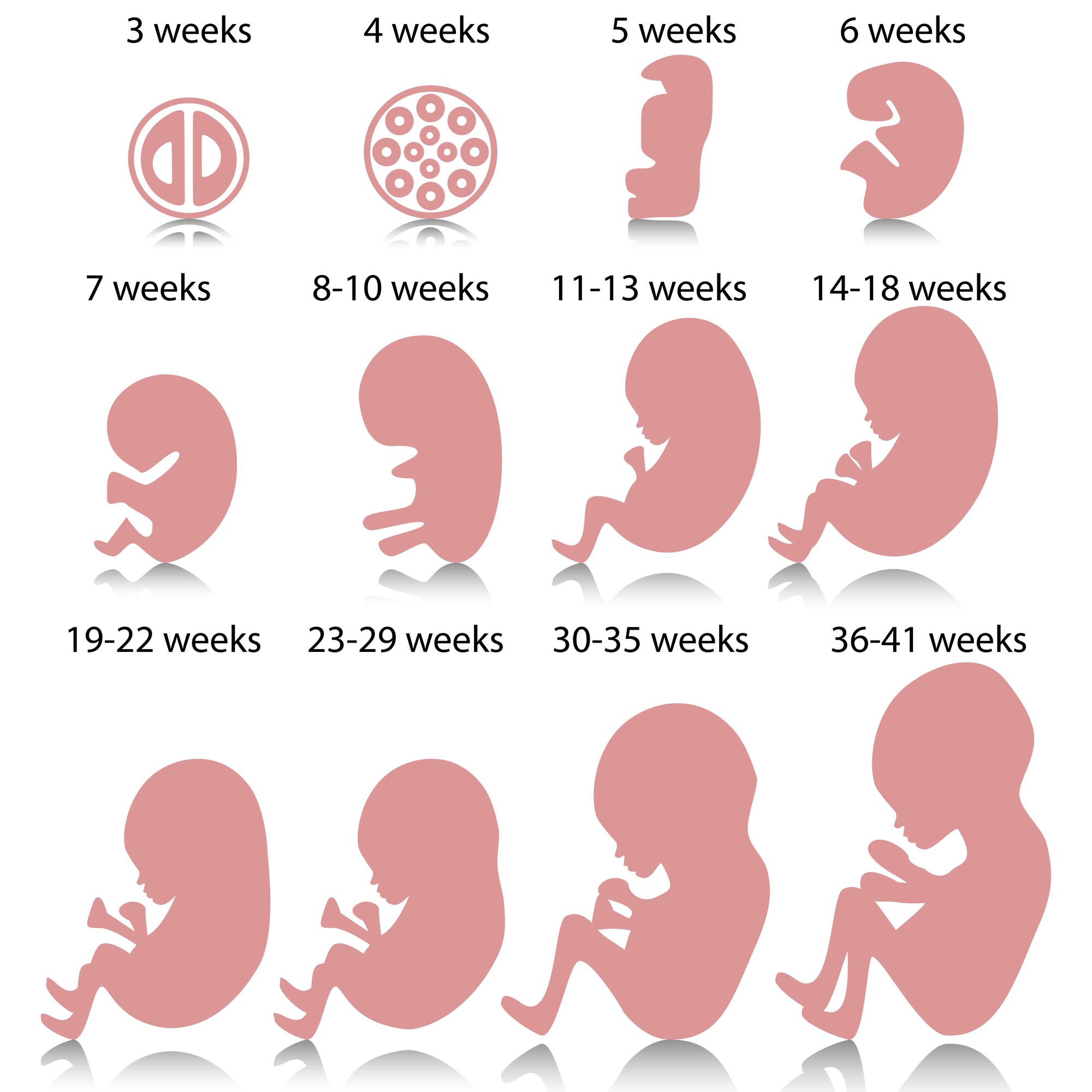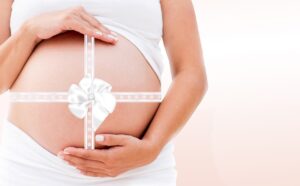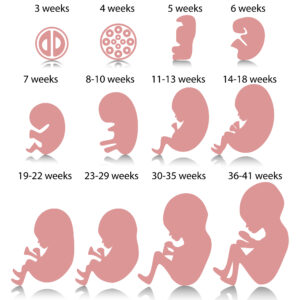Although the counting of weeks in pregnancy starts from week 1, conception actually takes place at the beginning of the third week.
Keep the date on which you started your last period, because they will ask you in each consultation. You’ll see it written as the first day of last menstrual cycle. It is not until day 14-15 of your cycle that your egg is fertilized by a sperm, giving rise to what will be your child.
Why not count the weeks then from that moment? It is difficult to detect the exact date of ovulation, it is much easier to mark on the calendar the day that the bleeding of the last period began.
It may happen that, in women with very irregular cycles, ovulation does not take place exactly on day 14-15 of the cycle. If this is your case, the gynecologist may correct the weeks of pregnancy in the first ultrasound.
CHANGES IN YOUR BABY THIS WEEK
When the egg and sperm unite, it contributes an X or Y chromosome, thus determining from the beginning whether your baby (called a zygote at this stage of pregnancy) will be a girl or a boy.
30 hours after fertilization, the cells begin to multiply rapidly as the zygote travels through the fallopian tube, until it reaches the place where it will nest and develop for the next 9 months: your uterus.
Did you know that each of the cells that are formed during these first days are already highly specialized in forming each of your baby’s organs? The zygote is tiny, it is totally impossible to see it even on an ultrasound , it is smaller than the head of a pin!
YOUR PHYSICAL AND EMOTIONAL CHANGES
Although maternal changes are not described until later in pregnancy, there are women who say they knew they were pregnant this week. Either by appreciating subtle changes in your body, or by pure intuition.
Although it is very early, you may begin to notice tightness in your chest or typical premenstrual abdominal symptoms. In this article we tell you the most and least frequent symptoms of early pregnancy.
TIPS FOR YOUR WELL-BEING
It is very important that you acquire healthy habits from now on, since it is at the beginning of pregnancy, when all the vital structures of the embryo are being formed, when there is the greatest risk of malformations due to bad habits:
- Check with your doctor about the medications you take or prescribe
- Indicates the possibility of being pregnant if you must undergo a diagnostic test such as an X-ray
- Try to completely eliminate tobacco and alcohol from your daily life
Also remember to continue taking folic acid.
MEDICAL EXAMS AND TESTS AT WEEK 3
If your wish is to get pregnant, it is advisable to go to your doctor or midwife for a prior check-up.
This consultation is called a preconception consultation and, ideally, it is done before pregnancy . The reason is to assess if you have rubella antibodies. If you have been vaccinated in childhood, it is very likely that you are immune, if you are not and you are not pregnant yet, you can be vaccinated. If you already are pregnant, they will give you the vaccine when you give birth.
Other important things that should be assessed are your blood group and Rh, since if you are Rh negative, later they will have to give you an injection to avoid complications in your baby.
FREQUENT QUESTIONS
One of the most frequent doubts this week is whether there is a pregnancy or not, when is a test positive?
The truth is that the third week it is very unlikely that even while pregnant you will test positive , even if it is ultrasensitive.
Pregnancy tests detect a hormone called human chorionic gonadotropin or β-hCG, which appears in pregnancy but has not yet begun to be manufactured in large quantities at this point.
Therefore, do not despair if a negative test comes out, even doing it with the first urine in the morning. Wait for the fourth week and repeat it, you will have less chance of having a false negative.




Average Rating